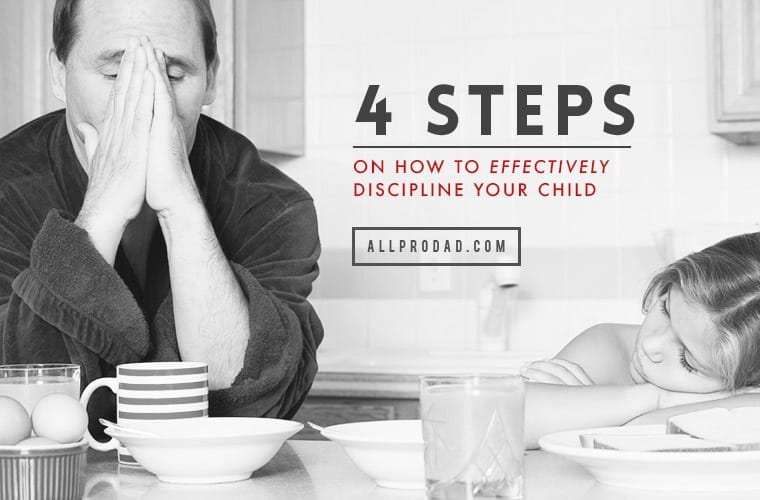Last week I was at a restaurant working when a little boy bumped my chair as he ran by my table. He kept running seemingly unaware of what just happened. That’s when his mom chimed in, “Look what you did! Come over here and sit down.” The boy stopped, heard what she said, and then ignored her. She increased her threat, “If you don’t sit down right now you are going to get a spanking!” This time, he looked at her and actually smiled before ignoring her again. She repeated threat after threat and, not surprisingly, it made no difference. It was tough to watch her become more and more frazzled before finally giving up. I started to think about what she must have been feeling: powerless? disrespected? embarrassed? I wanted to help her, but I am always hesitant to step in while someone is parenting their child unless the parent has given me permission.
It was clear she was lost when it came to disciplining her child and needed help. Perhaps you have felt the same way or have a spouse who struggles in this area. Here are 4 simple steps that you and your spouse can follow to effectively discipline your child.
1. Set clear boundaries and consequences.
Kids need to know the boundaries. As my mom reminded me when I was reprimanding my son, remember that they just got here. They don’t know right and wrong, we need to teach them. Before ever giving kids a consequence you need to make sure you clearly define the lines they are not to cross. Then explain why the boundaries are being set. It’s not enough to say, “Never lie to me.” You have to tell them why lying is wrong and what it does to your relationship.
Kids will be selfish, get into things they shouldn’t, hurt others, and disobey without thinking for a second how it affects others. Explain it to them and warn them that next time it will result in the consequence you choose. Think through your consequences carefully so they match the behavior. Then have them explain it back to you to make sure they heard you right. Now they know what’s coming if they cross the boundary.
2. Follow through on set consequences at all costs.
They are going to cross the boundary again. Explaining what they did wrong is never the end of that behavior; in fact, it will rear its ugly head many more times. The boundary lines have to be enforced or else they will disappear. That is what happened to the poor mom at the restaurant. While she may have felt like she had no influence over her son she was actually teaching him a powerful lesson: there would never be any consequences. Even more destructive, when you don’t follow through on your warnings to your kids you are teaching them that you are untrustworthy. It’s essential to walk your talk with unwavering consistency.
Note: It’s okay to change your mind on a consequence or occasionally give grace, but it shouldn’t happen often. Just make sure you explain why it is being changed clearly so they know you have thought things through carefully.
3. Discuss why and ask them to repeat it back to you.
After administering their consequence discuss it with them. Having both parents present for the talk is helpful. Take them to their room or a private place to talk about it. Start by asking them why they think they were punished. Have them explain it back to you. Make sure they understand it. The bottom line is to get them to think about how what they do affects others. Relationships are what makes life full and rich. When they step out of line they hurt their relationships.
4. Offer forgiveness and reconciliation.
When they understand the relationship they hurt it’s time to move towards healing. Teach them to ask for forgiveness. Then offer forgiveness and let them know that your relationship is right again. If it is between them and another child of yours teach the other child how to offer forgiveness. In our house, most of these interactions end with the words, “I forgive you and I love you.” Then we give some form of physical affection, a hug, a kiss, or having them sit on our laps for a while. Make sure they know at the end of the process, and throughout, that they are loved.
Sound off: What do you think is the most important aspect of disciplining children?











Huddle up with your kids and ask, “Why do you think I give you consequences?”